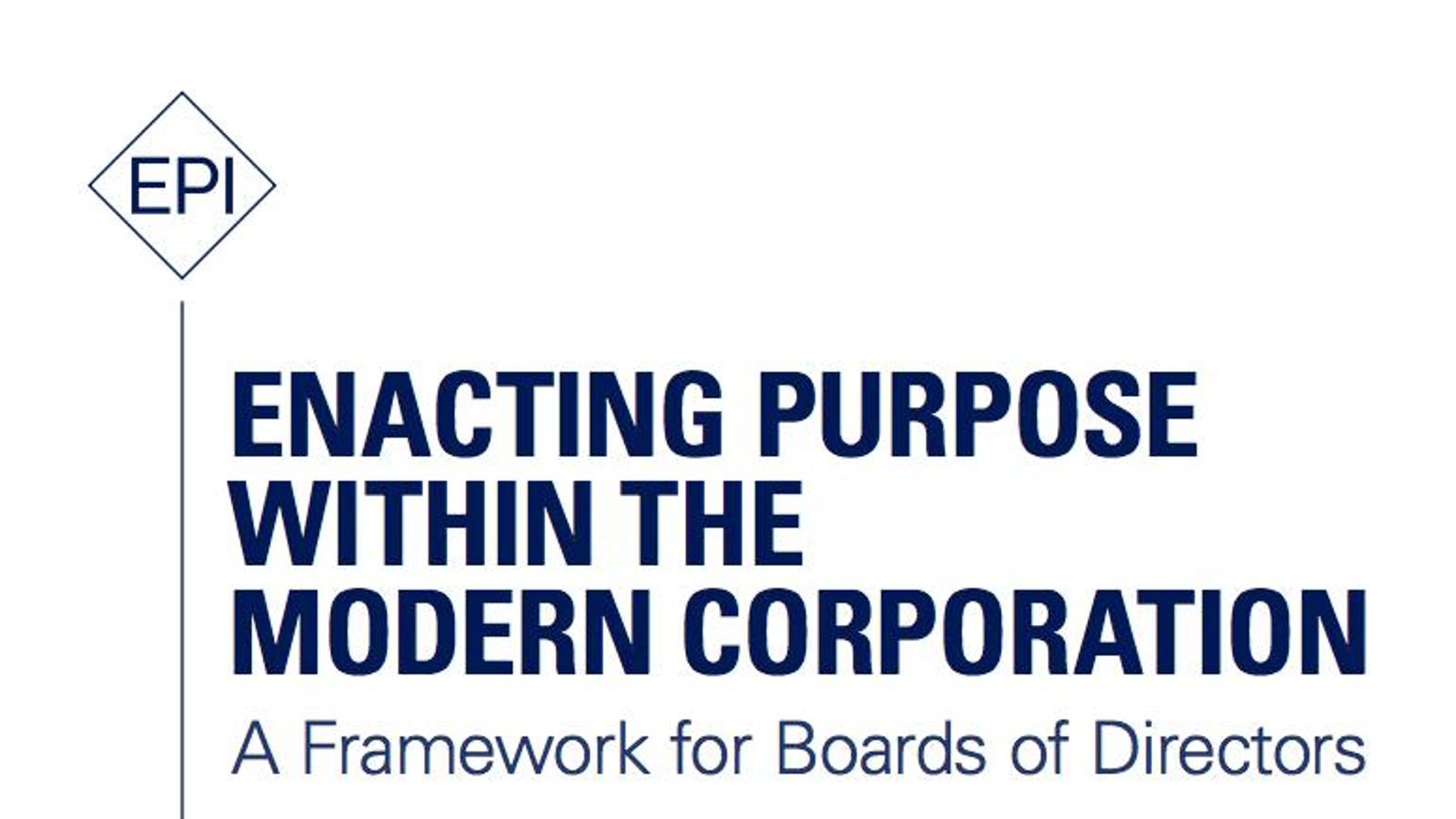Yesterday I suggested in an open letter that a good first step for the 181 companies whose CEO signed the Business Roundtable’s August 19, 2019 “Statement of the Purpose of a Corporation” to have their board of directors publish a company-specific, stakeholder inclusive “Statement of Purpose” for their particular company. I argued that this would be a good first step in responding to critics who doubt the sincerity of these CEOs.
Today, I am delighted to tell you about an initiative that I have been involved with over the course of the last nine months, and which I believe which will fill an important gap when it comes to the vital question of how purpose is governed. It is the “Enacting Purpose Initiative (EPI)” chaired by my Oxford colleague Rupert Younger, Director of the Oxford Center for Corporate Reputation, and co-chaired by another Oxford colleague, Professor Colin Mayer, and me. Oxford’s partners in the EPI are Berkeley Law School at the University of California, Berkeley; BrightHouse at the Boston Consulting Group; the British Academy; Federated Hermes EOS; and Wachtell, Lipton, Rosen & Katz.
To date some very good work has been done on the value of purpose and on the need to link this to the solving of the problems of people and planet. The intellectual foundation for this is Mayer’s book, “Prosperity: Better Business Makes the Greater Good”. He asks the question “What is purpose?” His answer is “Purpose is the reason for a company’s existence.
However, there has been little guidance for board directors, senior executives, and investors on how purpose should be best put into practice. Purpose needs to be enacted as an organizing principle, informing strategic decision-making and capital allocation, and drawing on the everyday values and culture to deliver the organization’s vision. Conceived in this way, purpose leads mission and strategy, rather than becoming a more tactical purpose as culture mechanism.
The EPI aims to remedy this. We have developed a powerful and simple new framework for governing purpose within organisations called SCORE based on the following five elements:
SUBSCRIBE TO OUR NEWSLETTER
Subscribe our newsletter to receive the latest news, articles and exclusive podcasts every week


